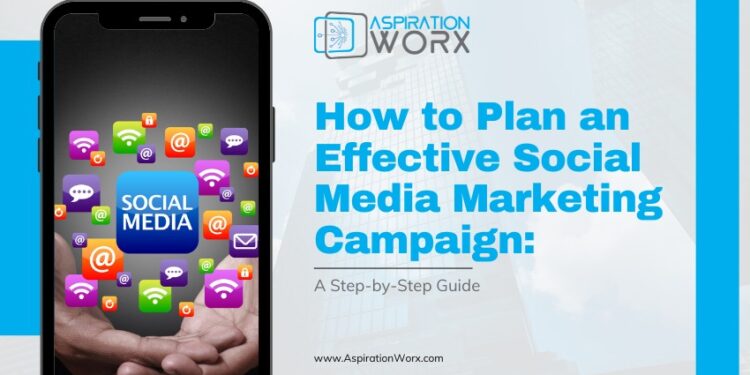How to Plan an Effective Social Media Marketing Campaign: A Step-by-Step Guide
Social media has become a cornerstone of digital marketing, providing unparalleled opportunities for brands to connect with their audience. However, with the ever-increasing competition, creating a standout social media campaign can be daunting. This guide will walk you through the essential steps to craft a compelling social media campaign that drives engagement and achieves your marketing goals.
Understanding the Importance of Social Media Campaigns
Social media campaigns are crucial for several reasons. They help increase brand awareness, engage with your audience, and drive traffic to your website. Unlike traditional marketing, social media allows for real-time interaction and feedback, making it a powerful tool for building relationships with your customers.
Setting Clear Objectives
The first step in planning a social media campaign is to set clear, measurable objectives. These could include increasing brand awareness, generating leads, driving website traffic, or boosting sales. Your objectives should align with your overall business goals and be specific, measurable, achievable, relevant, and time-bound (SMART).
Identifying Your Target Audience
Understanding your target audience is crucial for creating content that resonates. Conduct market research to gather insights about your audience’s demographics, interests, and behaviors. Use tools like social media analytics and surveys to refine your understanding of your audience.
Researching Competitors
Analyzing your competitors can provide valuable insights into what works and what doesn’t. Look at their social media profiles, content strategies, and engagement levels. Identify gaps in their approach that you can capitalize on and find inspiration for your own campaign.
Developing Your Content Strategy
Once you have a clear understanding of your objectives and audience, it’s time to develop your content strategy. This involves planning the type of content you will create, the platforms you will use, and the posting schedule.
Brainstorming Content Ideas
Content brainstorming is a creative process that involves generating ideas that align with your campaign goals and audience interests. Here are some techniques to get started:
Leveraging Newsletters
Subscribing to industry newsletters can provide a wealth of information about the latest trends, news, and best practices. Use these insights to inspire your content ideas.
Utilizing Social Listening Tools
Social listening tools help you monitor online conversations about your brand and industry. These tools can identify trending topics and popular hashtags, giving you ideas for relevant and engaging content.
Participating in Webinars
Webinars are great for learning from industry experts and networking with peers. They can provide new perspectives and ideas for your social media content.
Engaging in Forums
Forums like Quora and Reddit are excellent for discovering what questions and topics are currently popular in your industry. Participate in discussions to get ideas for content that addresses common questions and challenges.
Creating Engaging Content
Creating high-quality, engaging content is key to the success of your social media campaign. Your content should be visually appealing, informative, and aligned with your brand’s voice.
Collaborating with Influencers
Influencers have the power to amplify your message and reach a larger audience. Partnering with influencers can bring authenticity and credibility to your campaign. Choose influencers whose audience aligns with your target market and whose values match your brand.
Utilizing Visual Content
Visual content, such as images and videos, is more engaging than text alone. Use high-quality visuals to capture your audience’s attention and convey your message effectively. According to studies, posts with visuals receive significantly more engagement than those without.
Incorporating User-Generated Content
User-generated content (UGC) is a great way to build community and trust. Encourage your followers to share their own content related to your brand and feature it on your social media channels. This not only provides you with fresh content but also increases engagement and loyalty among your audience.
Executing Your Campaign
With your content strategy in place, it’s time to execute your campaign. This involves scheduling your posts, engaging with your audience, and monitoring your performance.
Scheduling and Posting
Use social media management tools to schedule your posts in advance. This ensures consistent posting and allows you to focus on engaging with your audience in real-time. Be mindful of the best times to post for each platform to maximize reach and engagement.
Engaging with Your Audience
Engagement is key to building a loyal following. Respond to comments, participate in conversations, and encourage interaction. Use polls, Q&A sessions, and live videos to engage with your audience and make them feel valued.
Measuring and Analyzing Results
Measuring the success of your campaign is essential to understand what worked and what didn’t. Use analytics tools to track key metrics such as engagement, reach, and conversions. Analyze the data to identify patterns and insights that can inform your future campaigns.
Key Metrics to Track
Some of the key metrics to track include:
- Engagement: Likes, comments, shares, and clicks.
- Reach: The number of people who saw your content.
- Conversions: Actions taken by users, such as signing up for a newsletter or making a purchase.
- Sentiment: The overall sentiment of comments and mentions about your brand.
Adjusting Your Strategy
Based on your analysis, make necessary adjustments to your strategy. This could involve tweaking your content, changing your posting schedule, or targeting a different audience segment. Continuous improvement is key to staying ahead in the competitive world of social media marketing.
Conclusion
Planning a successful social media campaign requires a strategic approach and a deep understanding of your audience. By setting clear objectives, creating engaging content, and continuously measuring your results, you can build campaigns that resonate with your audience and achieve your marketing goals. Remember, social media is a dynamic environment, so be ready to adapt and innovate to stay ahead of the curve.
















